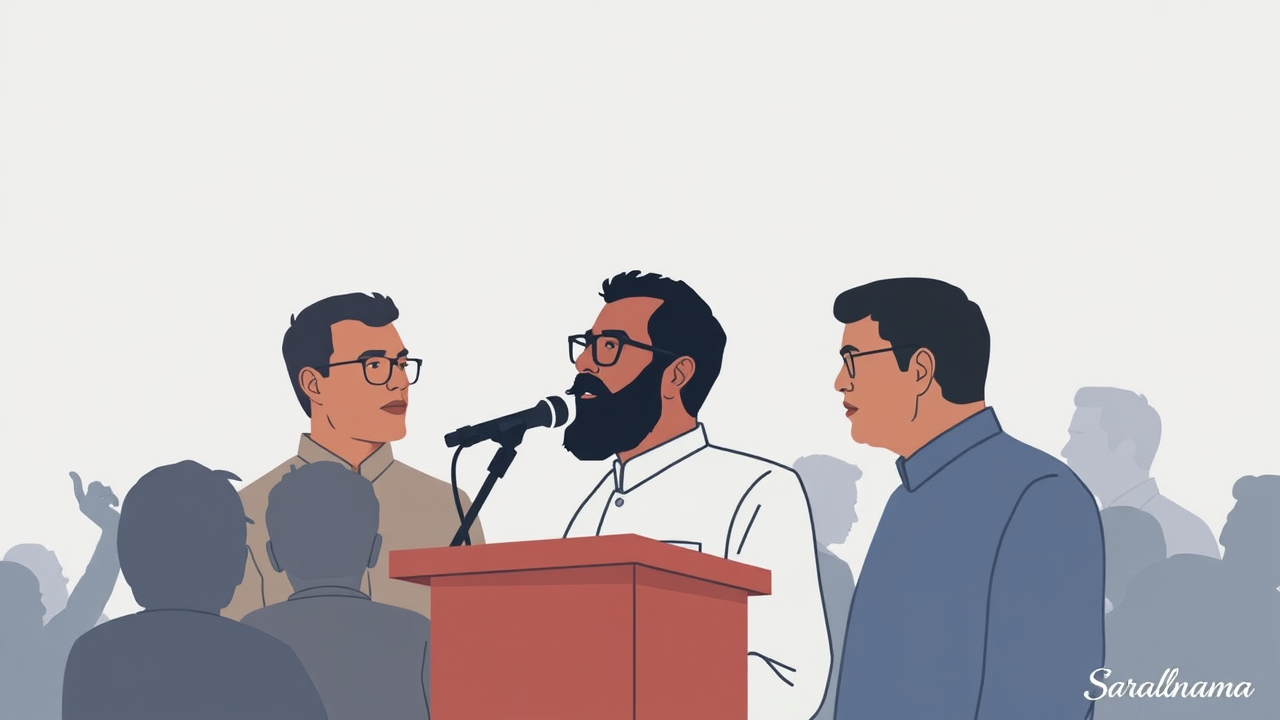Seemanchal, a region in Bihar comprising four districts—Purnea, Kishanganj, Araria, and Katihar—shares borders with Bangladesh and Nepal. The area is marked by large Muslim populations, ranging from 39 per cent in Purnea to about 68 per cent in Kishanganj. This region has traditionally been a stronghold for the Congress and RJD's M-Y (Muslim-Yadav) formula. However, in the 2020 assembly elections, Asaduddin Owaisi's AIMIM won five seats, all in Seemanchal, helping the BJP-led NDA secure an edge. Of the 24 assembly seats in the outgoing House, the NDA held 12 (eight BJP, four JD(U)), the Mahagathbandhan had seven (five Congress, one RJD, one CPI(M-L)), and AIMIM had five. Yet, four of the five AIMIM MLAs later defected to the RJD. Now, as elections approach, the region witnesses a fresh political conversation. The BJP's campaign focuses on illegal immigration from Bangladesh, which the party terms as the "ghuspaithiya" issue. Meanwhile, voters in Seemanchal debate whether Muslims need a "Muslim" party or should remain part of mainstream political alliances. The minority community here does not feel constantly besieged numerically, allowing room for tougher questions directed at both secular and Hindu nationalist parties. Voices on the ground reflect an opening up of difficult conversations about representation, identity, and the future of political alignments.

Debate Over Identity and Mainstream Politics
In Seemanchal, the minority community enjoys numerical strength, which allows for open political debate. Voters question whether Muslims require a separate "Muslim" party or should align with mainstream parties like the RJD and Congress. In Baisi, where AIMIM won in 2020 but the MLA later crossed over to RJD, Mohammad Ghiasuddin, a farmer, expresses frustration over the defection. Many residents say they voted for change but did not succeed. Mohammad Moin argues that Owaisi's appeal lies in his vocal support for Muslims, while Tejashwi's RJD takes Muslim votes but denies fair representation. However, Aslam, a ward member, counters that Muslims cannot form a government alone and must participate in the political mainstream. He points out that the BJP ruled Bihar for 20 years with Nitish Kumar, partly due to Muslim support. Muslims are not a monolith and want representation in all parties, he adds, challenging the BJP to give tickets to Muslim candidates.
BJP's Campaign and Voter Responses
The BJP's campaign centers on the "ghuspaithiya" (illegal immigrant) narrative, claiming that Bangladeshi immigrants have infiltrated the region. In Jhanda Chowk, Manoj Kumar Shah echoes this concern, saying illegal Bangladeshis are everywhere. However, voters like Kaisar in Kabristan Chowk reject this claim, asking who the real ghuspaithiya is. He argues that locals would know and report any foreigner. Shadaab, a medical professional, notes that many Bengali-speaking people came as refugees in 1971 and were settled by the government. Kausar questions the BJP's logic: if illegal immigrants are present, it reflects the failure of the Narendra Modi government, which has ruled the Centre for 11 years. Mohammad Sabir Ansari in Chhoti Masjid Mohalla says the Home Minister must answer what the border security force was doing. Mohammad Afzal Husain in Miya Bazaar says the BJP cannot say "Muslim" directly, so they say "ghuspaithiya," and voters understand fully.
Electoral Roll Revision and Administrative Lapses
The Special Intensive Revision (SIR) of electoral rolls on the eve of elections caused confusion and scramble in Seemanchal. Voters describe the process as chaotic, saying it "resurrected the dead and excluded names of the living." However, unlike other regions, voters here do not view the deletions as deliberate disenfranchisement but as administrative lapses that will be corrected. The SIR exercise is invoked to highlight the hollowness of the BJP's "ghuspaithiya" politics. Voters ask whether the SIR turned up evidence of illegal Bangladeshis. The refrain is: if there are illegal immigrants, show us the proof, and we also want them to go. The deletion of names is blamed on poor administration rather than a conspiracy to suppress Muslim votes. This perspective reflects the community's confidence and willingness to hold authorities accountable without feeling cornered or besieged, a sentiment unique to Seemanchal's political landscape.
Changing Political Loyalties and New Voices
Many voters in Seemanchal who supported Nitish Kumar previously are now reconsidering their choices. They credit Nitish with bringing development to Bihar but criticize him for caving to BJP pressures, particularly his silence on the Waqf law. This silence, along with issues like corruption, price rise, and unemployment, has stirred a desire for change. The Congress has gained ground in the region, partly due to visible support and goodwill for Rahul Gandhi. Voters describe him as a leader who "talks of facts" and is "secular," not parochial. Meanwhile, Owaisi's AIMIM remains a factor, though opinions are divided. In Kishanganj's Churipatti bazaar, Sanaur Rashid says Owaisi has given Muslims a new option and reduced their helplessness, but his supporters are often aggressive. Shamsher Alam in Bahadurganj warns against Muslims focusing only on their 18 per cent share, urging the community to talk about unemployment, economy, health, and education for all, not just for themselves.
Source: Link
